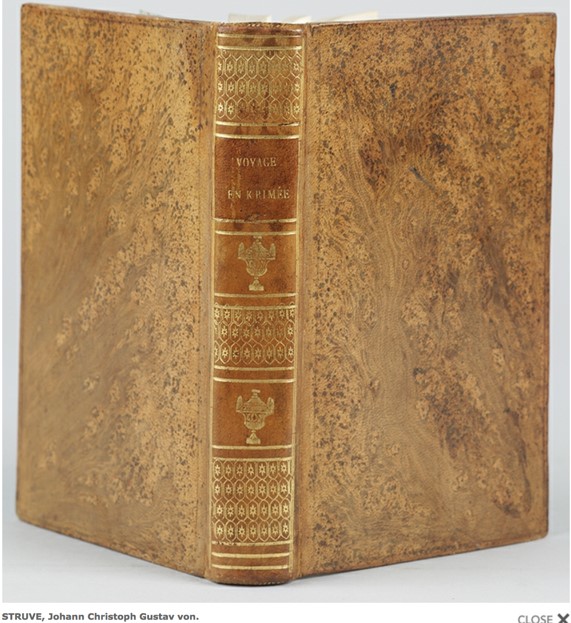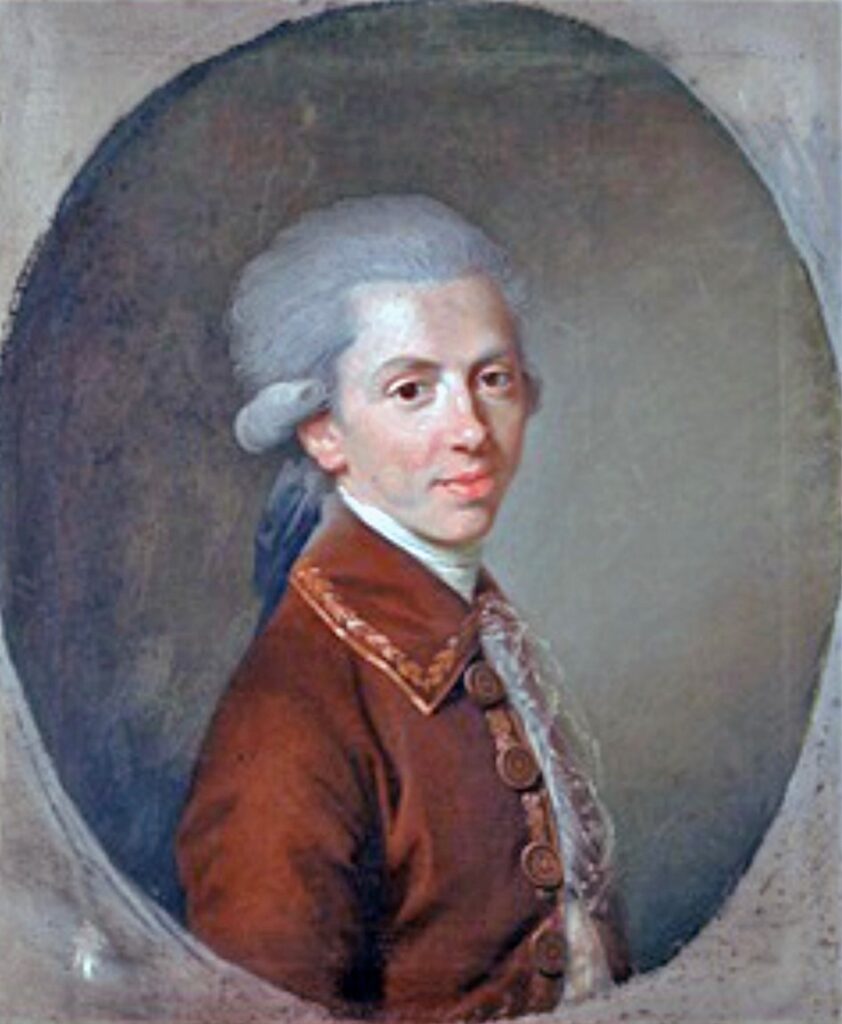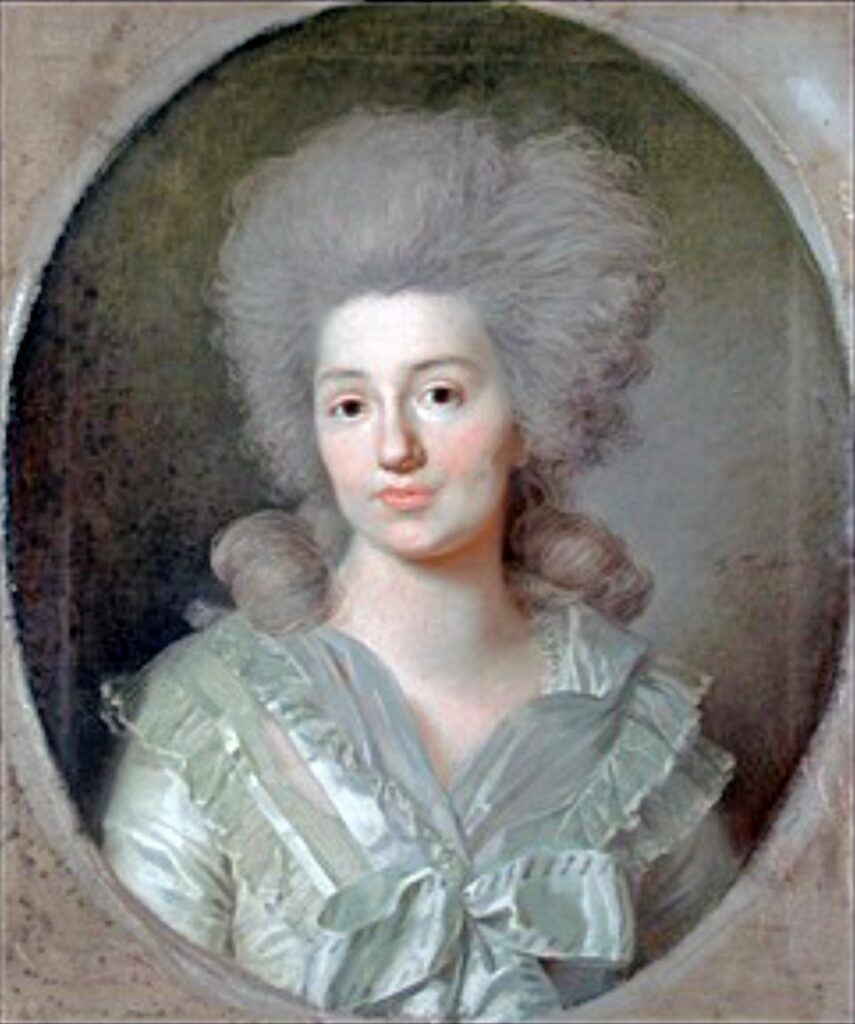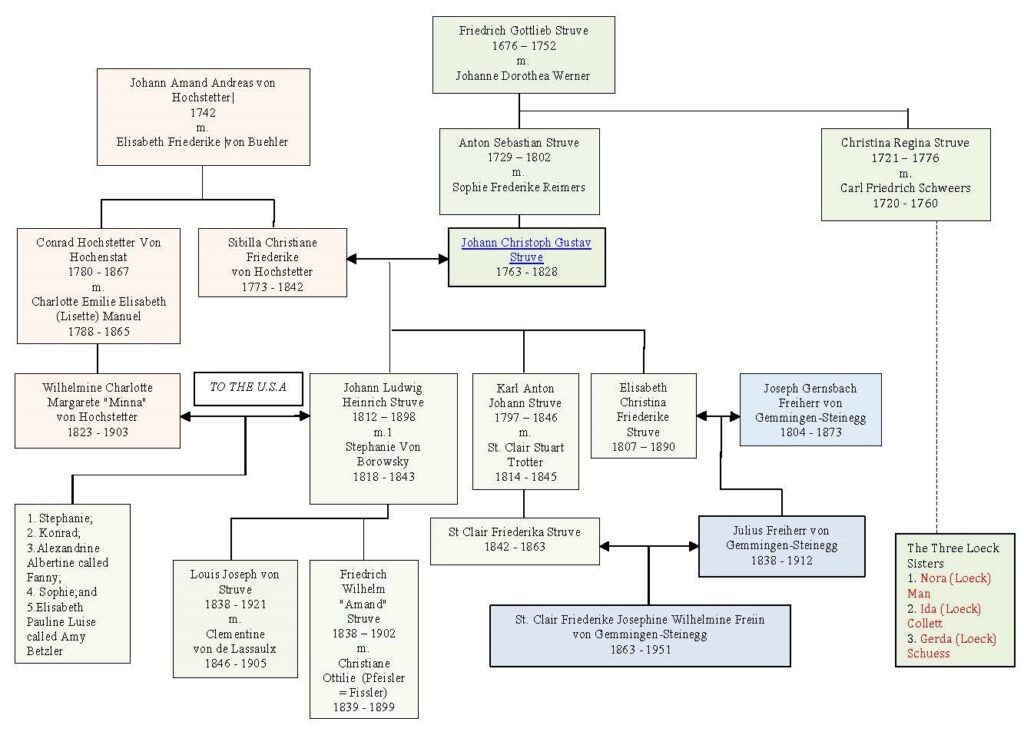Gustav, as he was most commonly known, was born on 26 September 1763 in Regensburg in the Kingdom of Bavaria during the Holy Roman Empire of German States to the diplomat Anton Sebastian von Struve, the Russian ambassador to the Reichstag, and his mother was Sophie Friederike Reimers. His brother was Heinrich Christian Gottfried von Struve.
In Stuttgart on 18 May 1793, Gustav married Sibilla Christiane Friederike von Hochstetter, the daughter of the German political leader, Johann Amand Andreas von Hochstetter and Elisabeth Friederike von Buehler. They had eleven known children. Gustav was a signer to the Treaty of Paris of 1814. There is also some confusion as to whether the name is Christoph or Christian; here we have chosen Christoph.
Johann Christoph completed his education together with his brother Georg at the Karlsakademie in Stuttgart (1777–1780) and then at the University of Erlangen. As early as 1782 he was employed by the Russian embassy in Warsaw, where he worked for eight years under Count Stackelberg. In 1790 he became titular councilor and joined his father at the Russian embassy in Regensburg. In 1798 he was promoted to court councilor and in 1799 transferred to the Russian embassy in Munich. In 1803 he belonged to the Russian legation at the Reichs deputation, which worked out the Reichs deputation shaupt schluss.
Below, Johann Christoph Gustav von Struve and Sibilla Christiane Friederike von Hochstetter pastels by Johann Friedrich August Tischbein (1750–1812)
After a brief assignment in the Russian embassy in Holland (1808), he was transferred to Stuttgart in 1809. During the Napoleonic Wars he had to withdraw from the Confederation of the Rhine and was entrusted with various missions in Austria and Germany. In 1815 he returned to Stuttgart. In 1817 he was appointed Russian envoy in Karlsruhe – a position he held for 11 years until his death. In 1820 he was awarded the Russian Order of Saint Anne and in 1825 with the Order of Saint Vladimir for his long service.

He and Sibilla had ten children (five sons and five daughters) who survived him (two died in childhood):
- Elise (* 1795; † 1844);
- Karl Anton (* 1797; † 1846) – Russian councilor and first delegation secretary to the German Bundestag in Frankfurt am Main; married St Clair Stuart Trotter the daughter of the Scottish cabinet maker William Trotter. Their daughter married the son of Elizabeth (below);
- Amand (* 1798; † 1867) – Russian councilor and first secretary of the embassy at the embassy in Bern;
- Sophie (* 1801; † 1864);
- Georg Heinrich Christoph Franz (* 1802) – imperial-royal forester in Gensionwo in the Kingdom of Poland; married Eugenie Josephine Charlotte von Witte (1809 – 1892);
- Katharina (* 1803; † 1855);
- Gustav Karl Johann Christian (* 1805; † 1870) – politician, lawyer, publicist and Revolutionary 1848/1849; married Amalie Durser;
- Elisabeth Christina Friederike Auguste (* 1807, † 1890); married Joseph Gernsbach Freiherr von Gemmingen-Steinegg (* 1804, † 1873);
- Philippine (* 1809); and
- Johann Ludwig Karl Heinrich (* 1812 † 1898) Emigrated to Texas, USA. Married 1) Stephanie von Borowsky and 2) Wilhelmine Charlotte Margarete “Minna” von Hochstetter. (The link will take you to a Wikipedia page).
The following biographical details are taken from: The Struve Family in Europe and Texas …
Johann Christoph Gustav von Struve was an exceptionally robust, stern man, but liked to joke and laugh. He liked to sing and whistle when he thought nobody was listening. He was a fast walker and a good horseback rider. A quote from his son Amand says, “When he was in his fifties, I once walked with him from Baden to Karlsruhe, nearly four miles, in one afternoon. After the walk he wasn’t any more tired than I was, and I was a student at the time.”
He was a man of simple tastes and simple dress, though his position led him into important circles. He valued simplicity in others. He had a forgiving spirit, preferring to excuse a mistake rather than to punish. He loved simple country-cooking, liked to take evening walks with his family and friends of the house. He liked to play whist. He loved music, preferring simple songs and melodies. He particularly liked to listen to the singing of his daughter Sophie, who had a lovely voice. In his earlier years he played the harp and composed songs sung by his mother as he accompanied her on festive occasions such as birthday parties. He found true relaxation in evenings at home with his family, sitting, legs crossed, on the couch with his wife by his side knitting. During his later years he became sterner and quieter. He was unable to walk as uprightly as before and his eyes began to fail, but still there was on his face an expression of pious benevolence.
He was religious, friendly to others and clung to the old justice; he could hardly understand the theories of the “new time” which he believed to be threatening to the church and state. [He wouldn’t have understood the agitation for republicanism and democracy by his son Gustav (1805).] He was mild when judging others and never felt compelled to revenge, believing in the words, “Judge not” and “Vengeance is mine, says the Lord.” Every day was started with a prayer and he never started a journey or even a walk without praying to God to protect the family from all mishap.
History and German law were his main subject interest. He knew the classic writers and often recited Virgil and Horace when making an excursion with his family. He liked modern literature and read many books.


